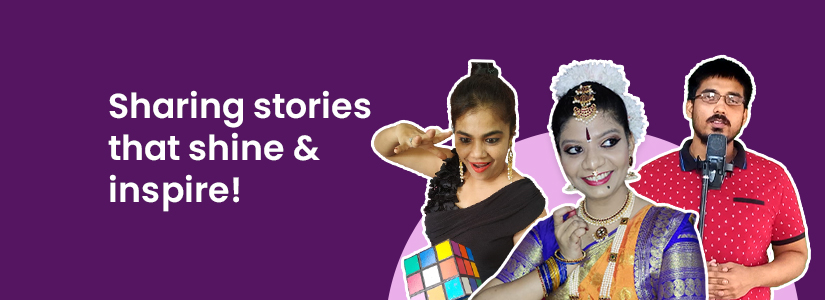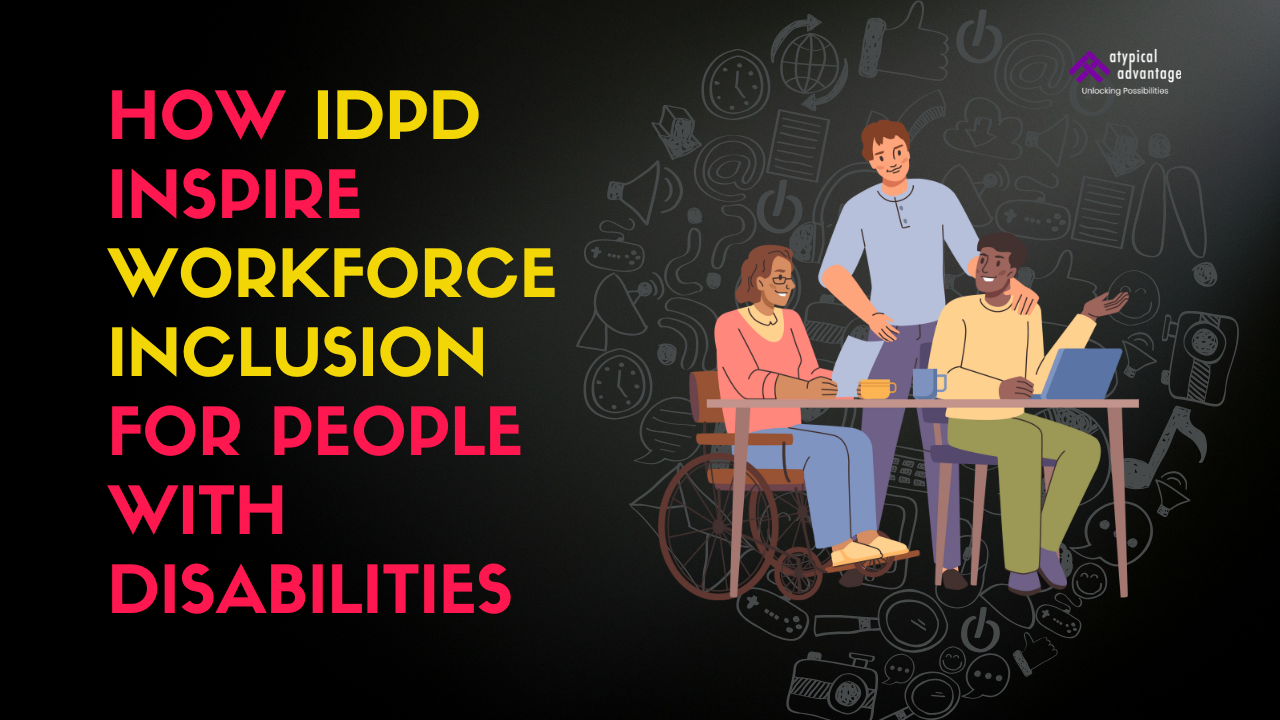
How IDPD Inspire Workforce Inclusion for People with DisabilitiesInternational Day of Persons with Disabilities (IDPD) represents more than... Click on post title to read more
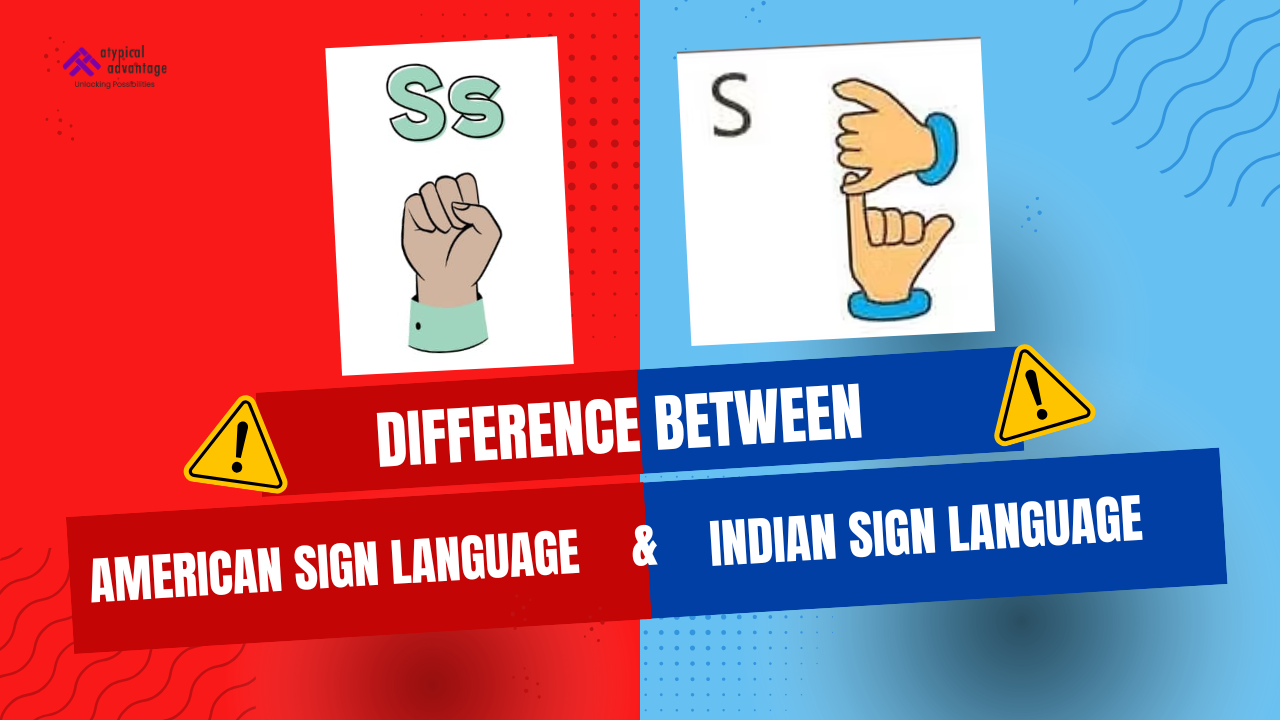
Difference Between American Sign Language and Indian Sign LanguageSign languages are an important means of communication for the deaf and sp... Click on post title to read more
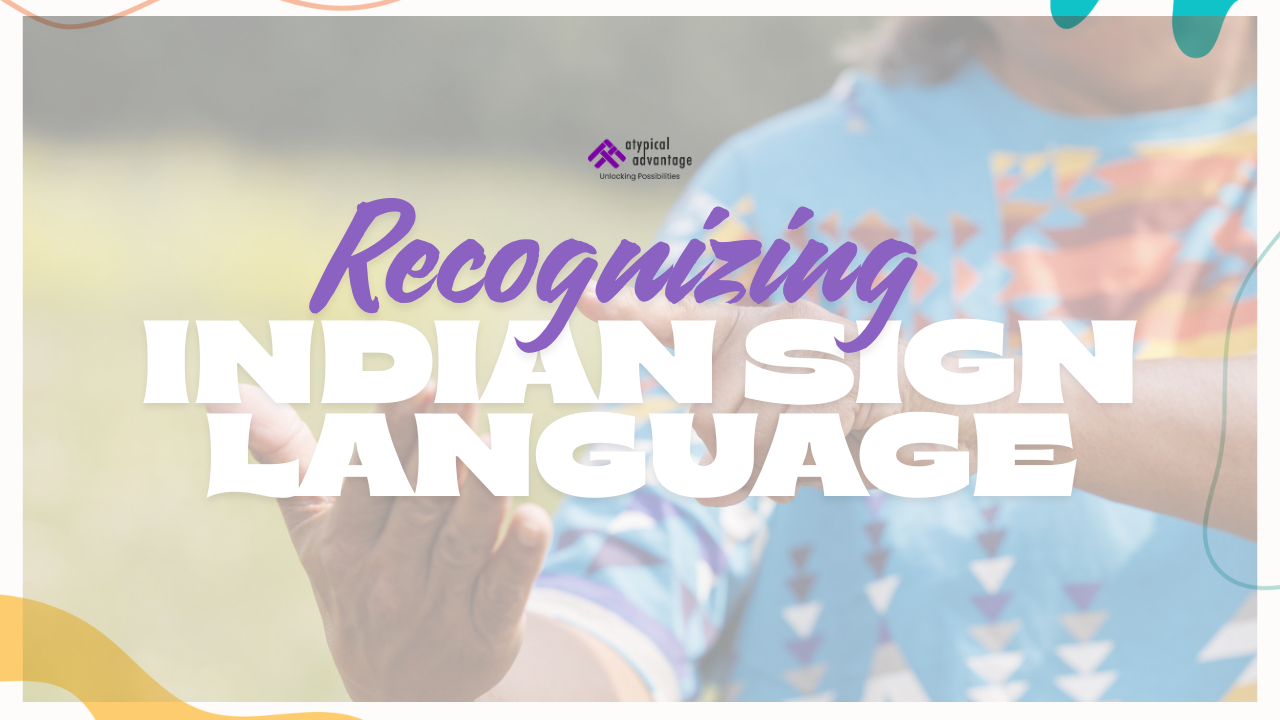
Indian Sign Language RecognitionWhat is Sign Language Recognition?Sign Language Recognition is one of the most recent trends in innovative m... Click on post title to read more
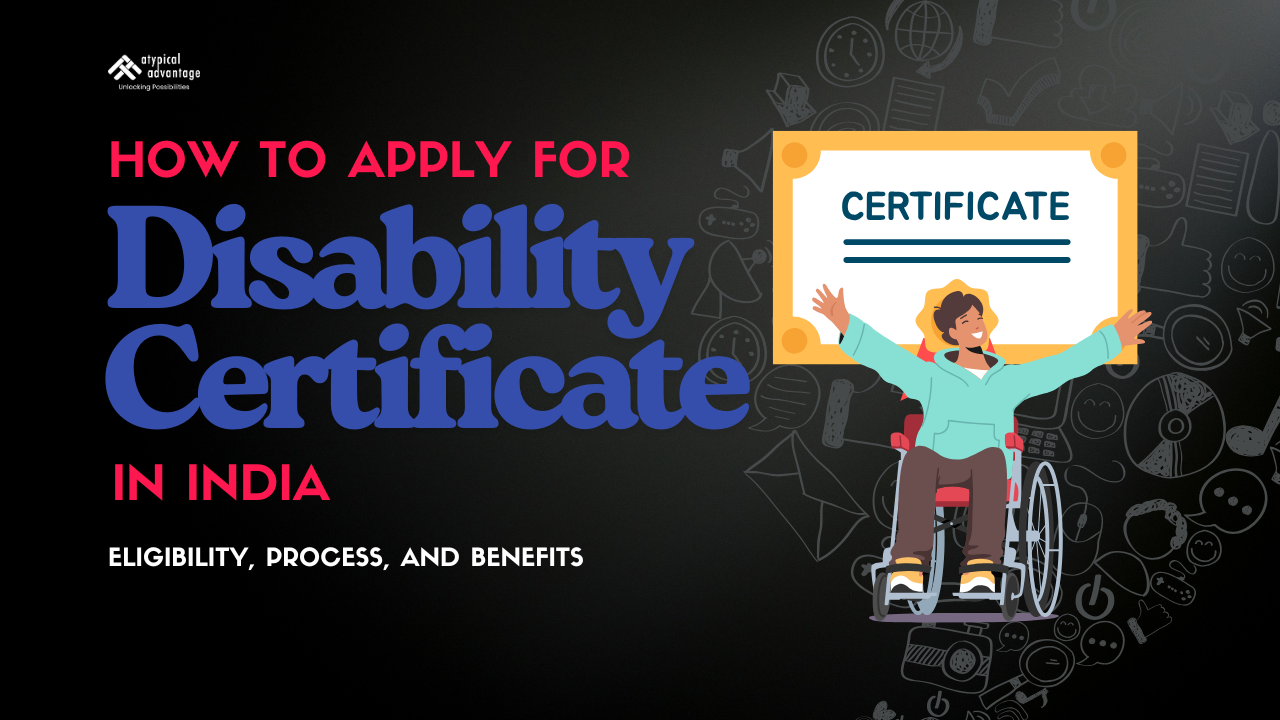
How to Apply for Disability Certificate in India: Eligibility, Process, and BenefitsWhat is a Disability Certificate?The Indian Government i... Click on post title to read more

Types of Disability: Understanding the 21 Types in DetailDisabilities are specific and affect people differently. The Rights of Persons with... Click on post title to read more

The Niramaya Disability Health Insurance Scheme is a governmental initiative that combines unique health-care needs of people with... Click on post title to read more

About Global Accessibility Awareness DayConsider a universe in which everyone is adept at using websites, apps, and technology, irrespective... Click on post title to read more

Creative Activities for World Autism Awareness Day: Engaging Ideas to CelebrateWorld Autism Awareness Day is observed on April 2 every year.... Click on post title to read more

How to Learn Indian Sign LanguageIndian Sign Language, popularly known as ISL, is an eloquent, expressive visual language used mainly among... Click on post title to read more

What is World Autism Awareness Day?World Autism Awareness Day is celebrated on April 2 each year. It is a worldwide campaign for the creatio... Click on post title to read more

Best Women's Day Celebration Ideas in the OfficeCelebrating Women's Day in the office is a great opportunity to appreciate the women working... Click on post title to read more

World Autism Awareness Day (WAAD)April 2nd marks World Autism Awareness Day (WAAD), every year. In fields including health, education, and e... Click on post title to read more

Famous Disabled Women Achievers in IndiaWe often hear that women can’t do anything, especially in India. But let me tell you something that... Click on post title to read more

National Fellowship Scheme for Students with Disabilities in IndiaThe National Fellowship Scheme for Students with Disabilities is a promise... Click on post title to read more

The Future of Disability Rights: What’s Next After IDPD 2025?The International Day of Persons with Disabilities, celebrated every year on De... Click on post title to read more

International Day of Persons with Disabilities (IDPD)Every December 3rd, the world marks the International Day of Persons with Disabilities... Click on post title to read more

What is the International Day of Persons with Disabilities?The International Day of Persons with Disabilities is observed on December 3 with... Click on post title to read more

India is filled with great characters, and some of the most iconic voices belong to some of the greatest disability motivational speakers. T... Click on post title to read more

Free Bus Pass for Disabled People in IndiaTravelling can be very difficult especially for the Person with Disability, who may always face th... Click on post title to read more

The umbrella scholarship is designed specially for the people with disabilities. It aims to cover all the educational needs. This is one of... Click on post title to read more

India is a country full of different cultures and colors, and there are many amazing stories of people showing great strength and courage. S... Click on post title to read more

The Government of India, has taken certain significant steps towards providing employment opportunities to physically disabled persons. Taki... Click on post title to read more

The Integrated Education for Disabled Children (IEDC) scheme is one of the most pivotal schemes from the Government of India for addressing... Click on post title to read more

An enormous and appreciable attempt has been made regarding the inclusion and equating of opportunities with people with disabilities in Ind... Click on post title to read more

Indian Railway Concession for Disabled PersonsBeing one of the biggest railway networks in the world, Indian Railways have always been known... Click on post title to read more

A Comprehensive Guide to Disability Benefits in IndiaA diversified population in a country like India includes a sizable number of people wi... Click on post title to read more

There was a time when using words like diversity and inclusion would have gotten brownie points for a company in a presentation. However, wi... Click on post title to read more

IntroductionA job isn’t just about working and making money, it’s about giving your life a purpose, something meaningful to achieve and aspi... Click on post title to read more

In a world where abilities often overshadow disabilities, Atypical Advantage stands as a beacon of inspiration. Through vibrant murals and c... Click on post title to read more

Many employers often wonder how they can optimize their work environments and help employees perform better. We believe inclusivity plays a... Click on post title to read more

Awareness and knowledge are key to initiating change in society. How will we set out on a better path without knowing what we are working to... Click on post title to read more

More than 10% of the world’s population is dyslexic. 1 in 59 children in the world suffer from one or more learning disabilities. Chil... Click on post title to read more

Nobody gives a second thought to the ease with which we perform everyday activities like brushing our teeth, bathing, and even commuting fro... Click on post title to read more

Wondering what the government has lined up for our differently-abled friends? Well, there are a bunch of schemes that help PwD get jobs, sup... Click on post title to read more

Inclusivity is not just a concept but a celebration! As we approach the International Day for Persons with Disabilities, observed globally o... Click on post title to read more

To make a business conference successful, what ingredients would you need? An expert panel of speakers, a spacious hall with a good sound se... Click on post title to read more

Who knew Mad Over Donuts could spread happiness in more ways than one? Yes, their donuts are out of this world and can bring a smile to even... Click on post title to read more

Most of us must have seen white stick figures painted on a red or darker shade of brown canvas, whether in circles going through routine tas... Click on post title to read more

Life is either a daring adventure or nothing at all. - Hellen KellerPeople with disabilities have gone on to create unimaginable history. Th... Click on post title to read more

The founder of Atypical Advantage, Vineet Saraiwala, firmly believes in the power of the ripple effect. When one person comes forward and ig... Click on post title to read more

What Constitutes Inclusive Hiring?Inclusive hiring is the practice of offering suitable roles to individuals with physical, mental, or intel... Click on post title to read more

This Independence Day, tune into the Rhythms of Inclusion across India.This Independence week, Atypical Advantage and Nexus Mall are coming... Click on post title to read more

Let’s meet Sweta; a dynamo who was struck with spina bifida; a locomotor disability at birth. Her life was set to be an uphill battle. Yet,... Click on post title to read more

Creating an inclusive work environment for PWDs can bring numerous benefits to employers and employees.However, the unemployment rate for pe... Click on post title to read more

If you are reading this blog, congratulations! You have already started your inclusive hiring/recruitment journey. Hiring persons with disab... Click on post title to read more

Art is a universal form of expression that allows individuals to communicate their ideas, emotions, and perspectives to the world. However,... Click on post title to read more

As an HR representative, one of your top priorities is to make the new employees feel welcomed, supported, and appreciated. Well-chosen onbo... Click on post title to read more

“My journey as a person with a hearing impairment has been filled with hurdles, but I refused to let that hold me back. While many individua... Click on post title to read more

Atypical Advantage is a product of the 2020 lockdown. The motive was simple - to help Persons with Disabilities (PwDs) find jobs and generat... Click on post title to read more

On 11th January, Atypical Advantage founder, Vineet Saraiwala made a pitch to Shark Tank India judges, Peyush Bansal, Namita Thapar, Anupam... Click on post title to read more

Showing appreciation for your clients and employees is essential for building strong relationships and keeping your company top of mind all... Click on post title to read more

"All work and no play makes Jack a dull boy" is a proverb that is relevant more than ever, especially in the corporate world. Blowing... Click on post title to read more

A diverse workplace is one that is inclusive and reflects the diversity of the community in which it operates. This can include diversity in... Click on post title to read more

‘What can you really do?’ - this is perhaps the most common question thrown at Persons with Disabilities by society. Growing up in a country... Click on post title to read more

We are two years old! This means we are still at a nascent stage but confident that we are on the right track. It started with one man’s vis... Click on post title to read more

TW: SuicideAfter I came to terms with my blindness, my life took on a new purpose. I began a YouTube series called ‘Blind Guy Tries’ and doc... Click on post title to read more

#Diwali started on a happier, more colourful note for us. 28 artists with disabilities visited 40 stores of Pepperfry across India to paint... Click on post title to read more

According to a Forbes article, the coronavirus pandemic has indirectly resulted in various new opportunities for Persons with Disabilities (... Click on post title to read more

The process of going through an inclusive hiring process can be stressful for Persons with Disabilities. What if their abilities are overlo... Click on post title to read more

To mark Azadi Ka Amrit Mahotsav, India's leading e-commerce furniture and home goods company, Pepperfry invited 30 artists with disabilities... Click on post title to read more

Diwali - the season of love, light and lanterns - is one of India’s notable festivals. Exchanging gifts forms an integral part of this humon... Click on post title to read more

Music is food for my soul and a doorway to heaven for me. As soon as I begin my ‘riyaz’ I’m transported into a different world, one where ev... Click on post title to read more

If you are a business owner or a part of Human Resources, you know the challenge of choosing a suitable gift for employees and clients. With... Click on post title to read more

'Thoughtful' and 'heartwarming' are some of the words that will come to your mind when you think of the best gift you have received. In most... Click on post title to read more

Staring at my laptop screen at midnight, I wonder if my blog can effectively encapsulate the CII-IBDN National Conference for Persons with D... Click on post title to read more

As a major global health issue, autism needs to gain more understanding. Each year, World Autism Awareness Day is celebrated on April 2 glob... Click on post title to read more

We love Holi and we especially love painting each other with all of the vibrant colours that come along with it! Every year, we Indian... Click on post title to read more

When we are in love, we see our loved one with a lens of perfection. In our eyes, they can do no wrong, and they are the most beautiful pers... Click on post title to read more

What does freedom mean to you this Republic Day? How can Artists with Disabilities give back to the country?What can the largest Home D... Click on post title to read more

Sachin is a born warrior. Despite having a locomotor disability, he is flying towards his dreams. He is a top-performing contestant of Dance... Click on post title to read more

Brands like Amazon, Arvind Limited, Thoughtworks, Barclays, Anarock, ReNew Power, The Man Company, Synchrony, Tata Steel and 25+ leading Bra... Click on post title to read more

We dream a million things, and accomplishing each and every one of those dreams delights us like never before. Just like making our society... Click on post title to read more

Selling an artwork or two is always a special moment for an artist who brings life into a blank canvas with his heart, soul and time. It's d... Click on post title to read more

The festival of lights is right around the corner. The markets are lush, the shopping offers are piling, and the excitement can be felt in t... Click on post title to read more

Virtual Domination: When 5 Performers with Disabilities Conquered the Virtual Stage!Our Performers with Disabilities never cease to amaze! W... Click on post title to read more

Content is the key to a successful business. If you know how to articulate your vision and your work well, nothing can stop you from achievi... Click on post title to read more

Despite being born prematurely and facing physical disabilities, two women have achieved remarkable success. Their inspiring stories demonst... Click on post title to read more

Have you ever experienced diversity of our country from an artistic sense?Where do Artists with disability find their inspiration for creati... Click on post title to read more

Abstract art requires a deeper thought, an inquisitive eye and a curious mind. It is also called non objective art or nonrepresentation... Click on post title to read more

Because of many upcoming festivals, a wave of imminent joy will take over the country as everyone gears up to celebrate some very special da... Click on post title to read more

How can you make your show entertaining? Can people with disabilities be good entertainers? A show or an event is dull witho... Click on post title to read more

Charlotte Eriksen, the executive director of The Room, the first museum to focus on art by people with disabilities in New York City, says t... Click on post title to read more

The festival of Raksha Bandhan is not just to celebrate the bond between siblings, but also to commemorate the promise to take care of each... Click on post title to read more

The bond between a brother and a sister is one of the most beautiful. It harbors love and affection that continues to grow stronger with tim... Click on post title to read more

How can a person with intellectual disability cook delicious dishes? Can a person with muscular dystrophy provide homeopathy aid to kid... Click on post title to read more

Offering a multitude of services, we need to make our website more inclusive and accessible for people as we move along. To execute the same... Click on post title to read more

Persons with Disabilities (PwDs) have met with stereotypes and discrimination almost each time that they try to explore their abilities and... Click on post title to read more

What if the warning about a natural disaster did not reach you?What if you were rejected in the interview because the interviewer did not un... Click on post title to read more

Can people with disabilities be entrepreneurs? How can they manage their enterprise successfully?What obstacles do they face while sett... Click on post title to read more

Can individuals in college Multi task?How can enthusiasm triumph experience?Could you connect as a Team without even meeting once? Whet... Click on post title to read more

Hiring persons with disabilities can be a challenging task. From conducting interviews, sensitising employees, and forming laws on disabilit... Click on post title to read more

A message on social media was circulating about a law firm wanting to assist social enterprise on legal aspects. It was serendipity that led... Click on post title to read more

Art always provides comfort during difficult times. With each brushstroke and colour, it has evolved into a vehicle for humans to express th... Click on post title to read more

Modelling in the modern world is so much more than measurements and makeup and gorgeous hair. It’s about authenticity, relatability, relevan... Click on post title to read more

People with disabilities have been struggling to find adequate job opportunities even before the pandemic began, with their battle being wor... Click on post title to read more

In India, Labour Day is referred to as Antarrashtriya Shramik Diwas or Kamgar Din. While observed as an ancient northern hemisphere spring f... Click on post title to read more

We often hear people say that four walls don’t make a place a home, but the people living in it, make it into a sweet home. The people livin... Click on post title to read more

A curious soul and a knack for cooking made these three amazing people on the autism spectrum fall in love with cooking and baking. When a p... Click on post title to read more

“Know me for my abilities, not my disability. I choose not to place “DIS”, in my ability.” -Robert M. Hensel Along with the... Click on post title to read more

World Autism Awareness Day is celebrated on 2nd April every year to let the world focus on the problems faced by people on the Autism Spectr... Click on post title to read more

Can people with hearing impairment be professional photographers with an everlasting urge for self-improvement? Can a millennial... Click on post title to read more

Kevin Heath said, “Wherever there is a human in need, there is an opportunity for kindness and to make a difference.” Atypical Advantag... Click on post title to read more

The colorful festival of Holi brings joy and elation to the people of India. The festival brings people of the community together as they fo... Click on post title to read more

How often do you come across people who are willing to devote their time towards an initiative which inspires them? Have you ever met someon... Click on post title to read more
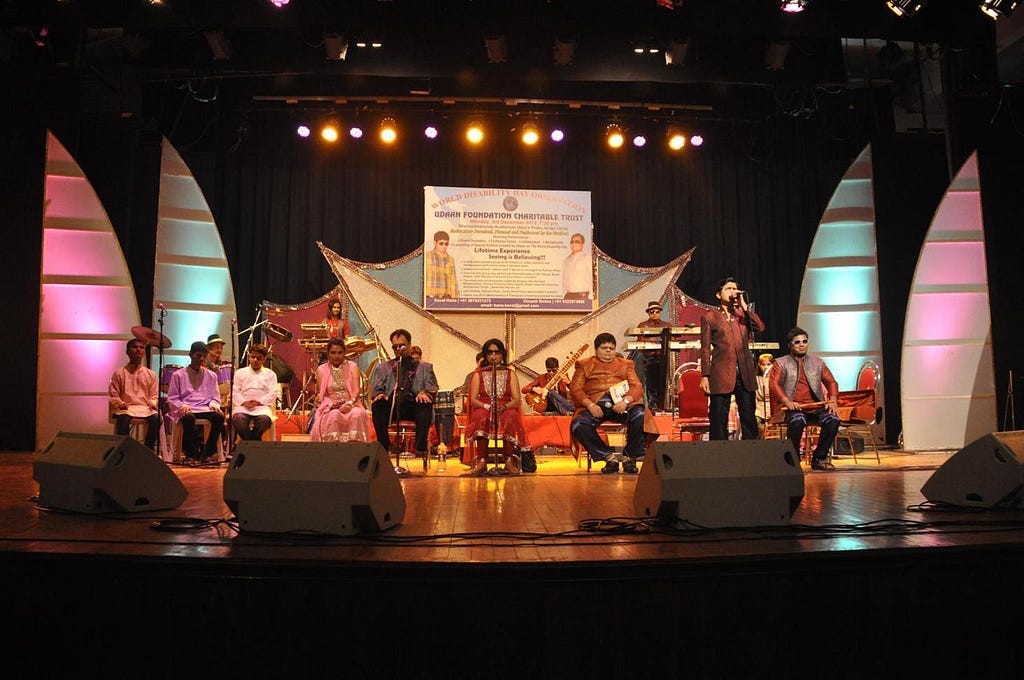
How can a conversation between 2 college pass outs turn into the creation of the biggest troupe in the country?How can an unfamiliar Band wi... Click on post title to read more
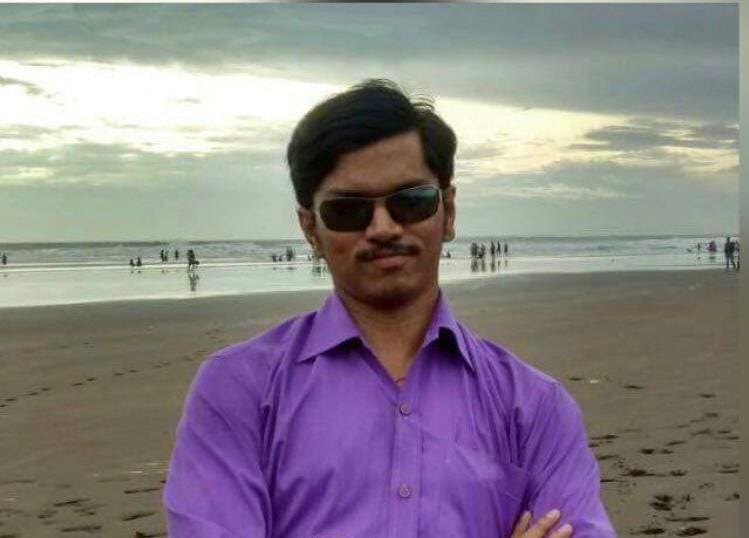
Can a shoulder injury be treated without surgical intervention?Can slip disc be tended to before it is too late?Can you trust physioth... Click on post title to read more

Love is all things beautiful, cheery and magical. When a person is in love, they tend to think that their partner is the most beautifu... Click on post title to read more
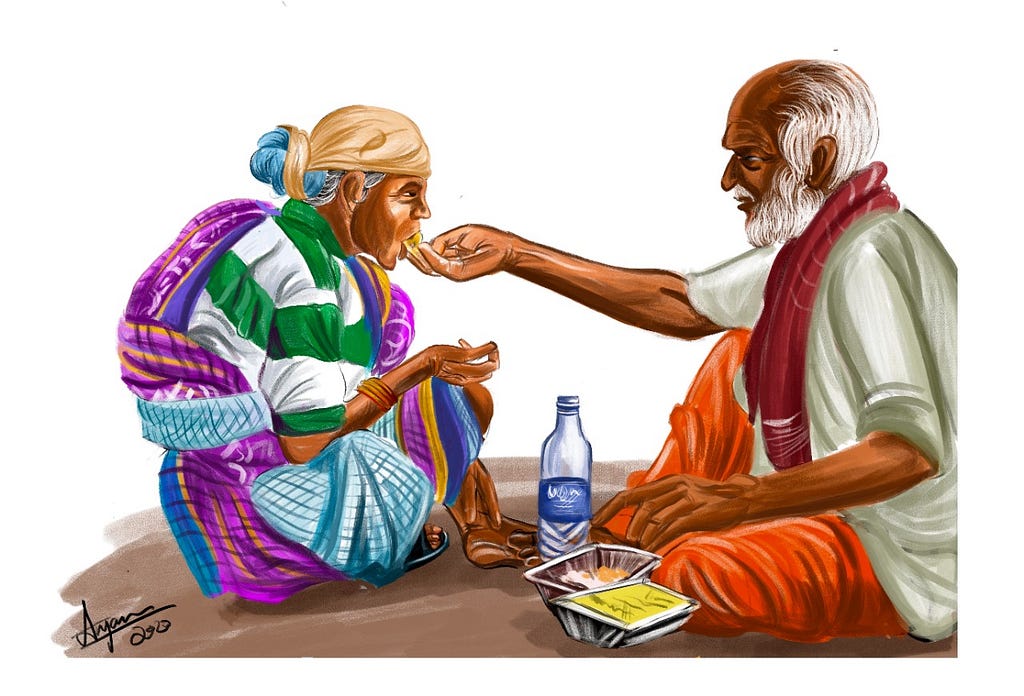
Art can express what words cannot.Profess your love this Valentine’s Day with these exquisite paintings!Do you want to give something... Click on post title to read more
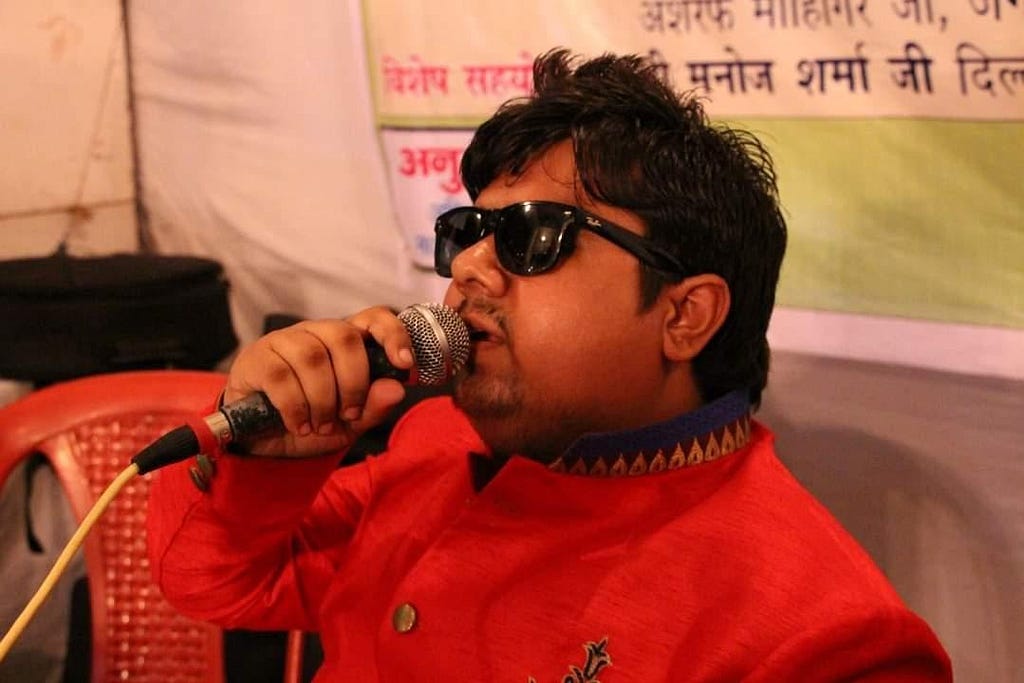
Can music be the pursuit of Happiness for any individual?Can multiple surgeries defy you from realising your passion for singing?Can Autism... Click on post title to read more
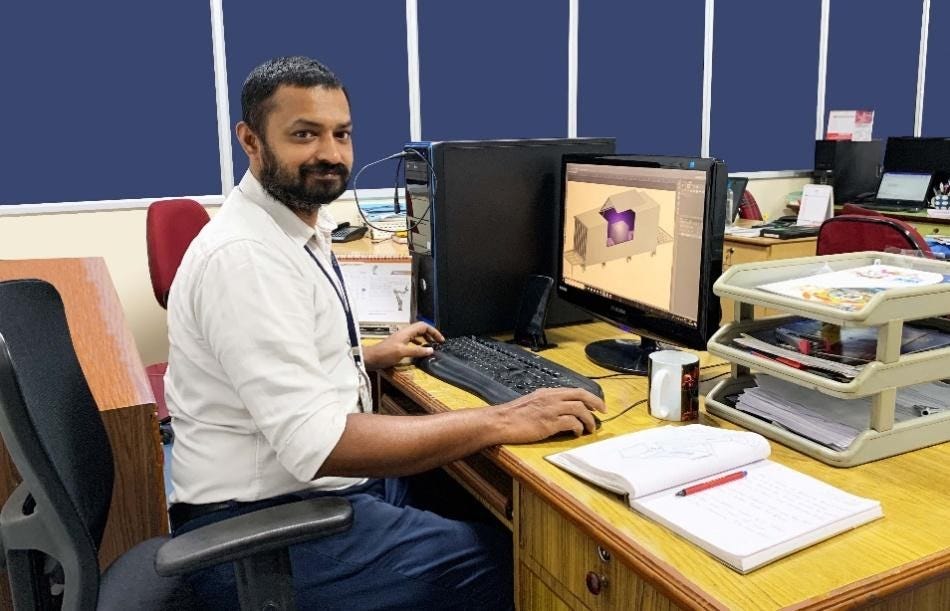
Can an individual on the autism spectrum create the perfect logo?How does the vision of the clients materialize into actual designs?Can Indi... Click on post title to read more
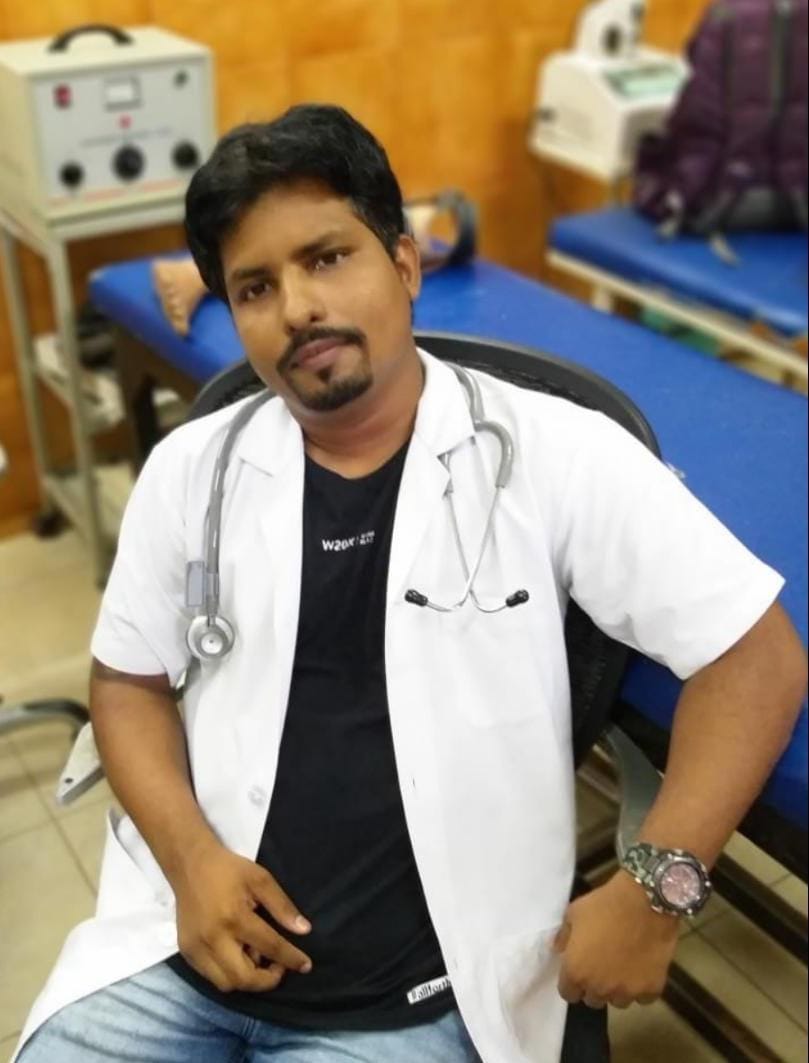
Do you want to pamper your body after a tiring week?Can a Masseuse become your best buddy?What is the secret to relieving your chronic ... Click on post title to read more
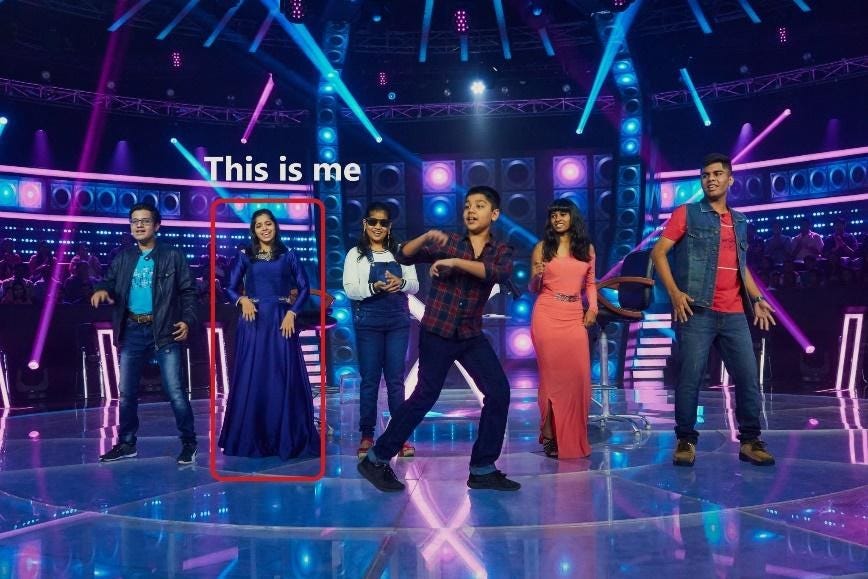
Can a Girl on the Autism spectrum bag a Bollywood film?Can a Non-Verbal boy get screened in the Mumbai film festival?Between meritocracy and... Click on post title to read more
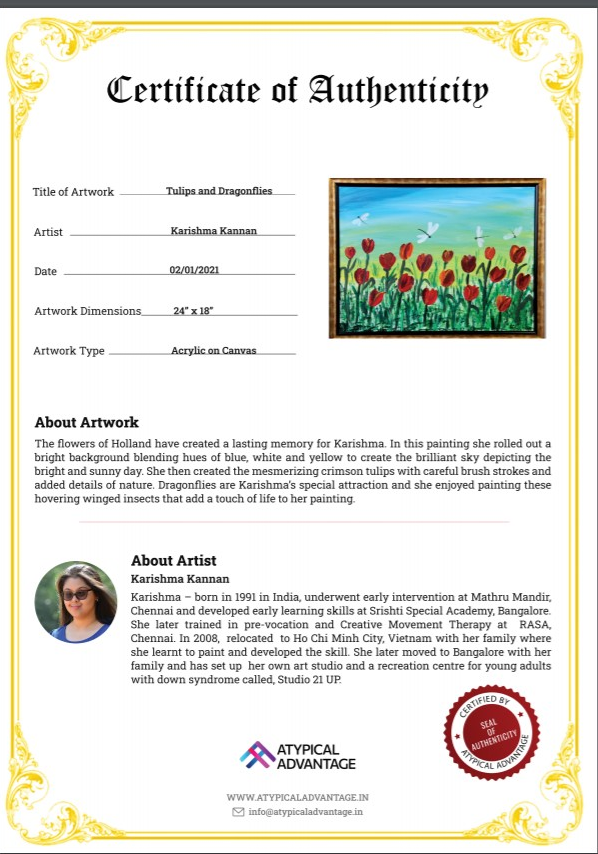
Whether it is the first day of school or office, the first time you visit your dream destination, the first salary you receive or the first... Click on post title to read more
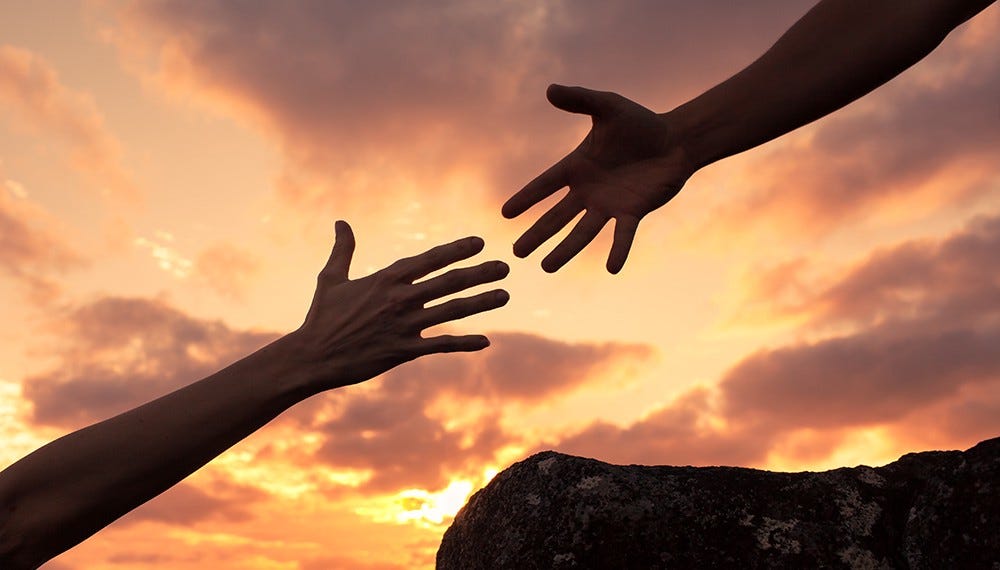
When CXOs to International Buyers in California came forward to support a tiny website which had not even been completed a month and Hollywo... Click on post title to read more
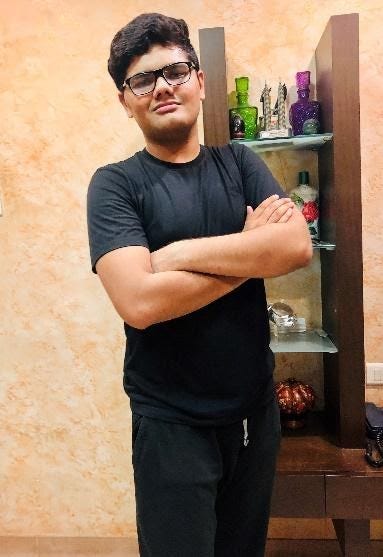
“The hardest thing to explain is the glaringly evident which everybody has decided not to see,” Ayn Rand wrote this in her Magnus opus The F... Click on post title to read more
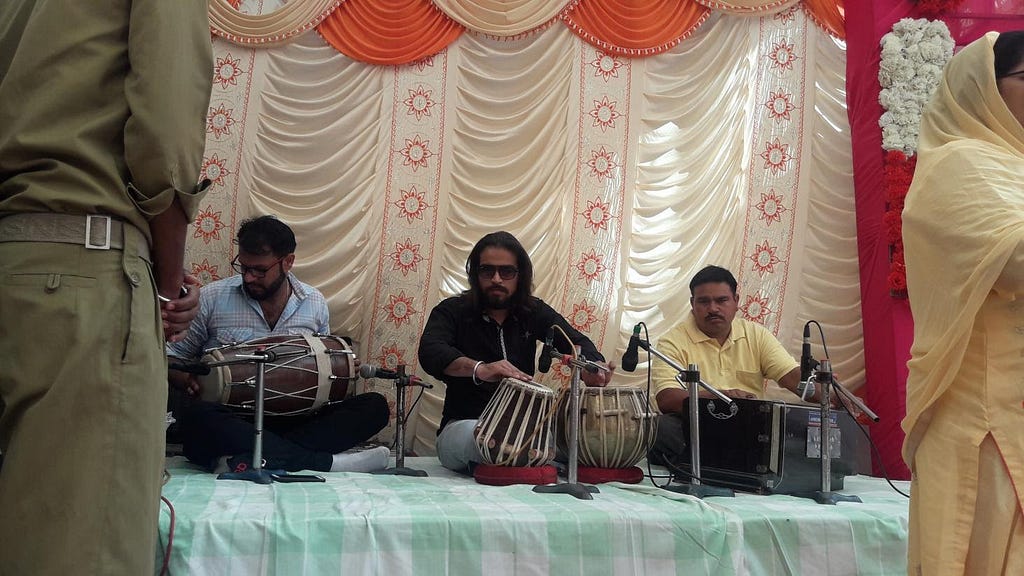
What happens in the pursuit of the classical dream?How can a musician give back to his community?Will you be able to play the Guitar after l... Click on post title to read more

Are the walls of your house or office empty and desolate? Do you want to adorn them with beautifully crafted paintings and artworks? O... Click on post title to read more
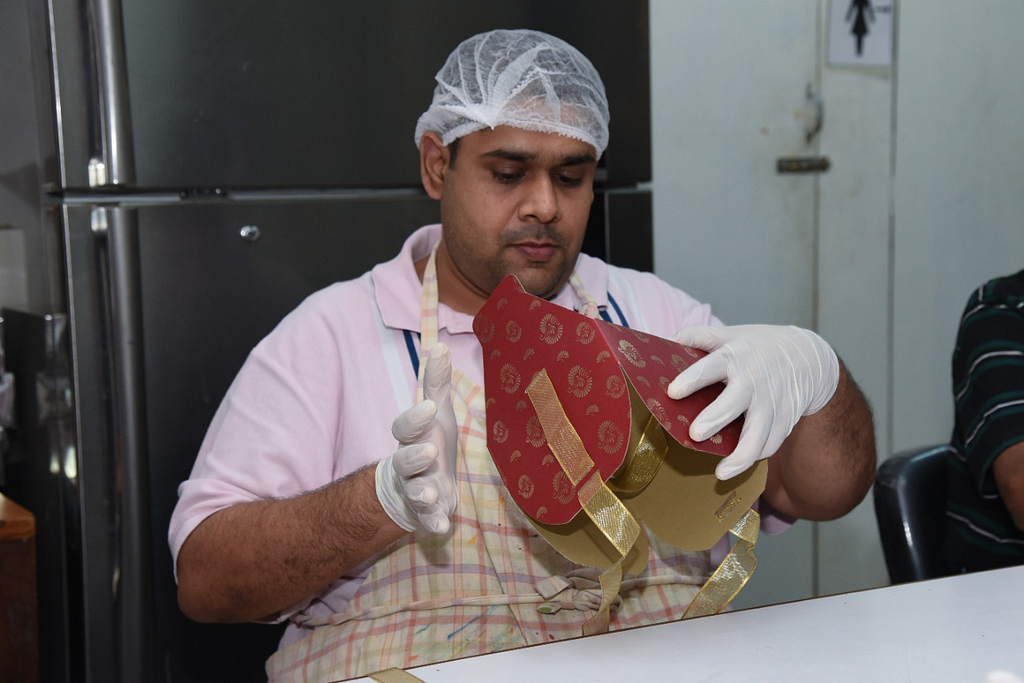
The spirit of Christmas lies in spreading happiness and the delight of spending time with your loved ones. This Christmas, the Atypical fami... Click on post title to read more

The humans of Atypical Advantage are all awe-inspiring. And they also have other things in common like their unfaltering resolve, a talent t... Click on post title to read more
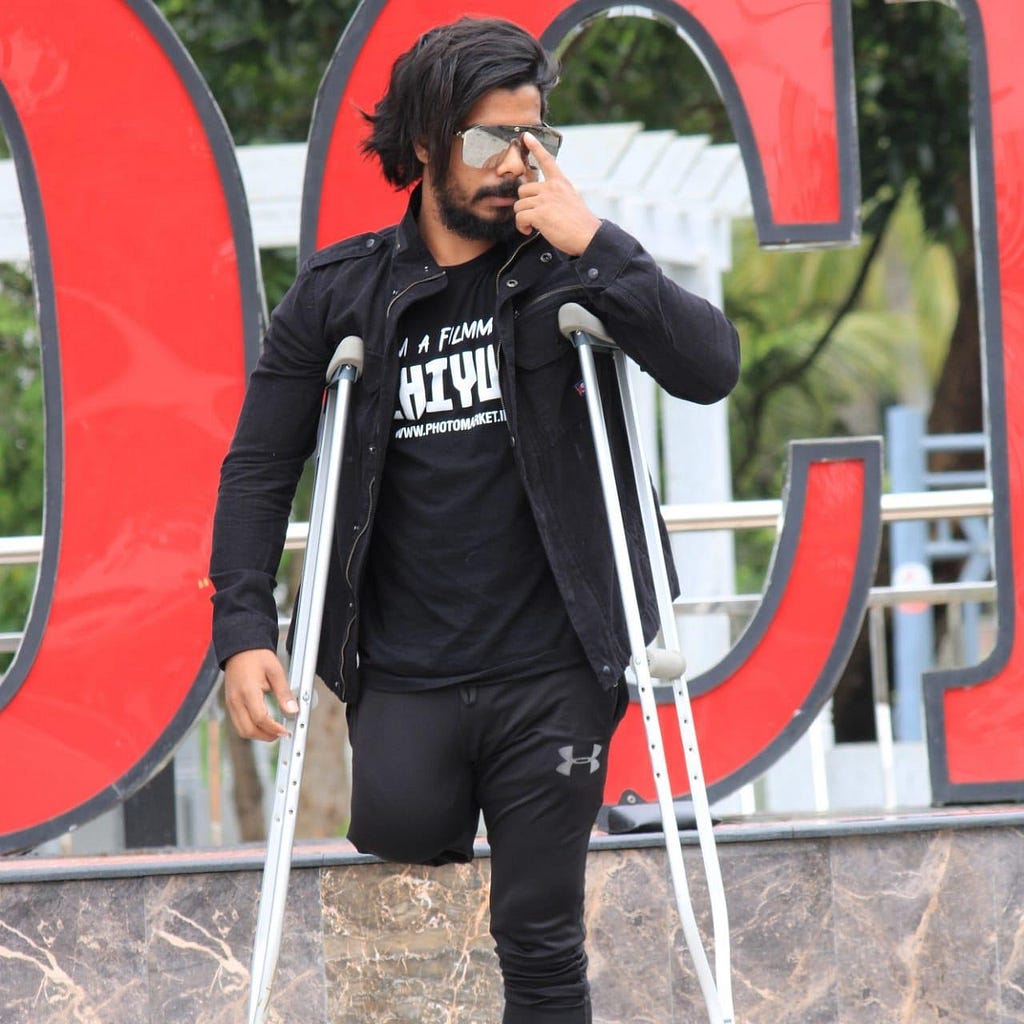
Can you dance to Bollywood beats after losing your left leg to an accident?Can you perform Bharatanatyam for 2 hours continuously?What makes... Click on post title to read more

Atypical Advantage is India’s largest platform generating livelihoods for people with disabilities (PwDs). As a PwD, you can sell paintings,... Click on post title to read more
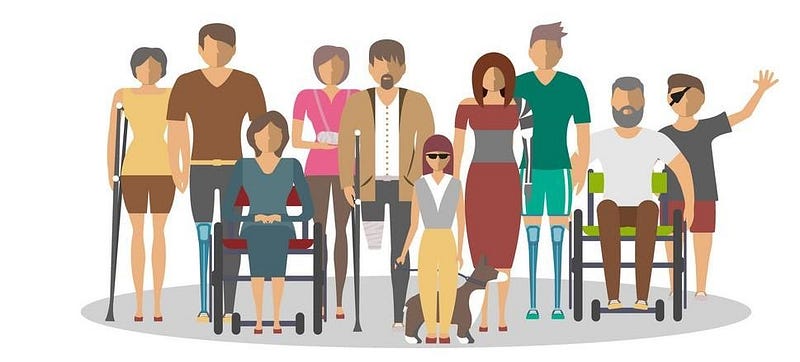
Hey There, I was hoping I would see you here. And now that you are here, could I interest you in a story? So, here it goes….It’s been a... Click on post title to read more
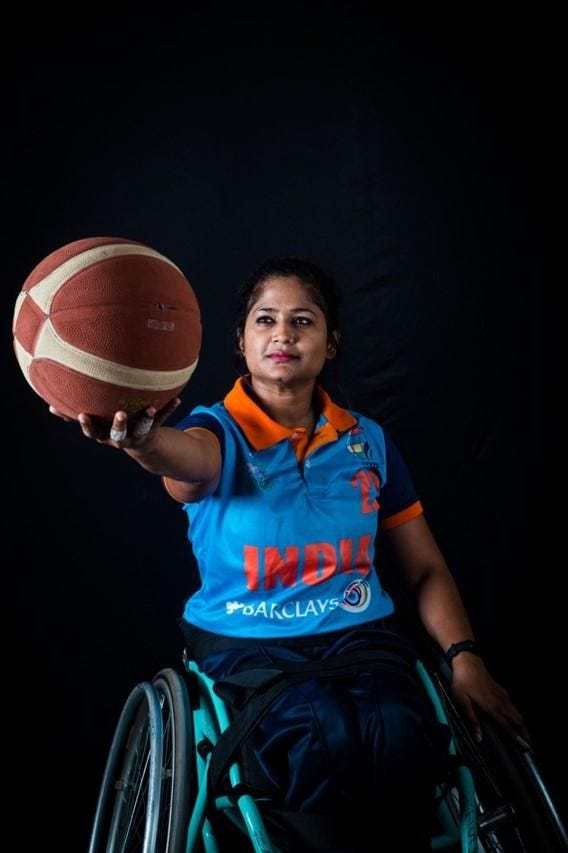
The Atypical Family is abundant with stories of all kinds. Stories of courage, inspiration, beauty, flow, and resilience. In this blog, we h... Click on post title to read more

